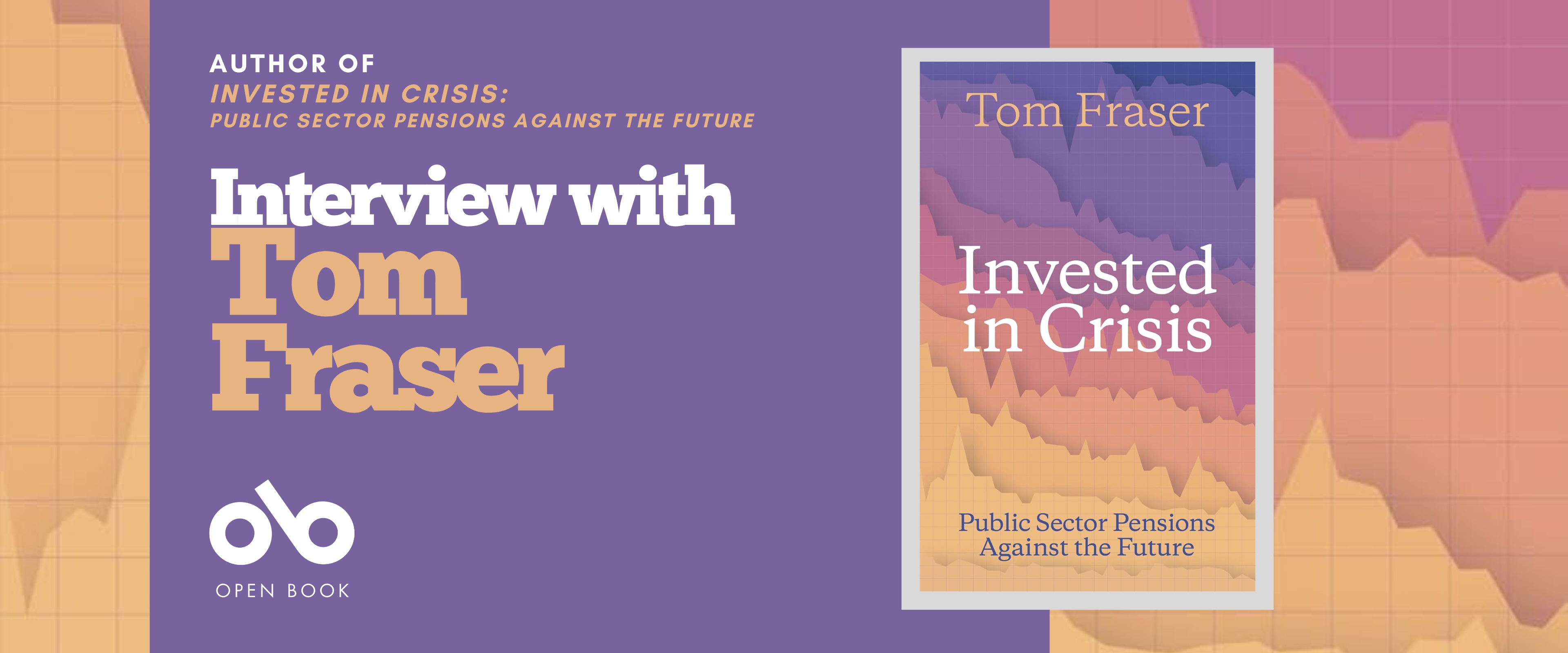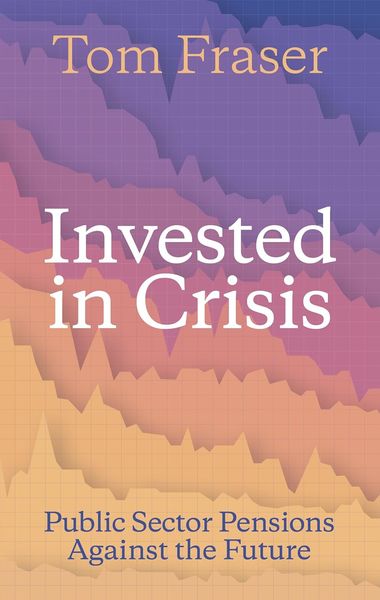Tom Fraser Explores the Political Decisions that Have Affected Ontario Workers in Invested in Crisis
As we emerge from yet another provincial election, labour rights and the struggles of the workforce are fresh on many readers' minds. The legacy of Ontario governments as far back as the 80s has had a tremendous impact on workers across the province, especially when it comes to some of their public sector decisions.
In the new nonfiction book, Invested in Crisis: Public Sector Pensions Against the Future (Between the Lines), union researcher Tom Fraser digs into the specific issue of the rise of the province's mega-pension-funds and the prioritization of finance over industry that had taken place for decades now. The author explores policies that have weakened the labour movement and union power, and what must be done for those entities to fight back and preserve a better future for Ontario workers.
Check out this fascinating True Story Nonfiction Interview with the author, where he elaborates on this new title and why these discussions are as important now as they have ever been.
Open Book:
Tell us about your new book and how it came to be. What made you passionate about the subject matter you're exploring?
Tom Fraser:
In Fall 2019, on a trip to New York City, I learned that Hudson Yards – a gargantuan mega-project on the west side of Manhattan, the biggest private real estate development in American history – was co-owned by the real estate arm of the Ontario Municipal Employees Retirement System. I already knew pension funds were fairly major real estate investors, but this was next level.
The following summer, while trying to find out if any Ontario pension funds were invested in prison infrastructure (which for the record, as far as I can tell, they’re not), I discovered that OMERS also owned a portfolio of rural public schools in Nova Scotia.
The last four years of writing this book have essentially been an exercise in determining how a connection was formed between an Ontario librarian, the small-town Maritimes, and the richest part of one of the richest cities on Earth. This passion was largely driven by my interest in understanding the contours of post-industrial political economy – where is capital accumulated today, where do people work, and what’s the relation between those two things?
OB:
Is there a question that is central to your book? And if so, is it the same question you were thinking about when you started writing or did it change during the writing process?
TF:
The guiding question is: “how did Ontario’s public retirement funds come to own everything on Earth?” – a rhetorical question which only mildly exaggerates. When I started, that question was almost fully formed, but with a little additional specificity: “how is it that the largest real estate project in U.S. history is owned by the same investor as a bunch of privatized public schools in rural Nova Scotia, and how is it that that investor is Ontario municipal workers?”
Your CanLit News
Subscribe to Open Book’s newsletter to get local book events, literary content, writing tips, and more in your inbox
Everything throughout has been structured by some variation on those questions. I’m trying to understand the strange linkages between the hyper-localness of public sector work and the crazy, seemingly endless reach of financial capital.
OB:
Do you have an opinion on how the word nonfiction is set – i.e. with or without a hyphen?
TF:
I don’t think I ever realized it could be un-hyphenated.
OB:
What do you need in order to write – in terms of space, food, rituals, writing instruments?
TF:
I struggle to write at home. So I have to be out of the house.
I write at bars, mainly. There’s one in my neighbourhood that I’ll go to after work and write. Much of this book was written there. I like the white noise and music in the background, I like that it’s kinda dark.
OB:
Did you write this book in the order it appears for readers? If not, how did it come together during the writing process?
TF:
If you’re taking a zoomed-out sort of view, I wrote the book in order. The introduction was a refinement of my proposal, Chapters One and Two were written in sequence as my graduate thesis, Chapter Three added when I was expanding into a full book.
Within that, however, the writing process was very far from linear. I write in an extremely ad hoc fashion, based on what is in my mind at any particular moment. I’ll outline a chapter and then jump around it, filling in the blanks of the outline with thoughts that enter the head. It’s all eventually woven together.
I’m not sure this produces anything particularly cohesive, but unfortunately I’m utterly incapable of working linearly.
OB:
What defines a great work of nonfiction, in your opinion? Tell us about one or two books you consider to be truly great books.
TF:
Depth and rigour without stodginess and turgidity. If your analysis is shallow, why are we here? If I find reading your book to be a miserable experience, why are we here? Far too often, I find we are meant to think of intellectual complexity and readability as counterposed forces, as if there’s some spectrum negatively correlating them to one another forcing the writer to either ‘dumb down’ their analysis or otherwise ‘jargon up’ their writing.
Neither needs to be sacrificed at the other’s altar! Beautiful writing and depth of thought should go hand in hand! But it is a very talented writer of nonfiction who can express extremely complicated thoughts without recourse to either flat, matter-of-fact description or brick walls of jargon. I hope to get there at around Book 4 or Book 5.
The writer I constantly come back to is the late Mike Davis – especially his glorious , a masterful series of essays on 20th century Los Angeles.
OB:
What are you working on now?
TF:
I recently finished a long essay on the discourse of a ‘productivity crisis’ which has been recently dominant in Canadian economic policy circles. I’m hoping to develop it into something bigger about Canada’s historical political economy and the shape of climate politics. We’ll see how it all shakes out.
____________________________________
Tom Fraser is a union researcher based in Tkaranto/Toronto. With an academic background in labour history, his research focuses narrowly on Ontario’s long-term care sector and more broadly on deindustrial political economy. His writing on labour, pensions, and infrastructure policy has appeared in Jacobin, Canadian Dimension, and The Globe and Mail.






